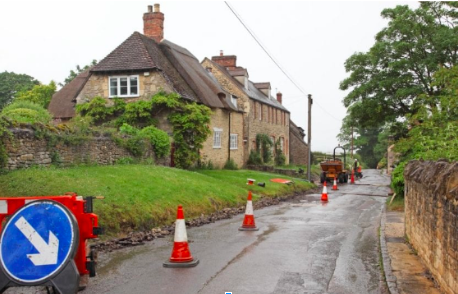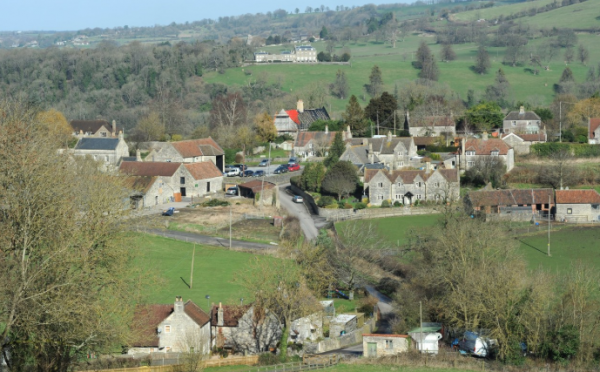
Technology Boosts Rural Life
Is it true that technology boosts rural life?
Conventional wisdom has it that the rural economy is in decline due to seismic shifts in the modern economy. Traditional rural industries are shrinking, or are moving abroad. Mainstay activities like farming need fewer people as they become more efficient. There is poor broadband and mobile connectivity and patchy transport services that further exaggerate the distance between rural communities and their potential markets. As a result, with limited future prospects, bright young talent is moving to the cities, exacerbating the cycle.
So begins this interesting opinion piece on the potential for technology-driven change in rural Britain by Doug Gurr, originally published in the Telegraph.
This has been the established narrative for rural Britain over the past many years, which is reflected in economic statistics. Official government figures show that rural unemployment is growing faster than in urban areas, while average earnings, capital investment per employee and gross value added per worker are significantly lower in rural areas than urban areas.
There are signs that the digital economy is driving growth in the broader rural economy.
And that has caused many people to ask: will rural Britain decline for generations to come, or can we close the rural-urban divide?
I live in a small village in Yorkshire, and from looking at both the macro trends and my own experiences in rural Britain, I personally believe that we are at a turning point.
It is a turning point driven by the long-awaited access to digital technology and the economic and societal benefits it delivers. There are signs that the digital economy is driving growth in the broader rural economy, and that technology may help unlock rural Britain’s potential faster than ever imagined. Technology boosts rural life.
Technology may help unlock rural Britain’s potential faster than ever imagined
While rural communities have long suffered from a lack of broadband connectivity, more and more communities are being connected, with the aim for a Universal Service Obligation – the right for everyone to have access to broadband – to be in place by 2020. And the good news is that rural businesses are more than eager to play catch up – improving their productivity and gaining greater access to new countries – all while the people working for them enjoy modern life in a rural setting.
Take business productivity in rural areas. What is a minor annoyance for urban businesses can become a big issue and waste of time for rural businesses. A printer runs out of ink or a drill bit breaks. While getting a replacement may have in the past required a long drive and hours out of the office, now they can be delivered the next day, maybe even at a better price, without leaving the office.
The internet lets people living in rural areas have the best of both worlds: the rural lifestyle with lower costs.
It’s tangible examples like these that help to underpin research showing that fast broadband dramatically increases business productivity in rural areas. In Cornwall, where superfast broadband coverage is provided to almost 90 pc of households and businesses, research published by SERIO at Plymouth University found that upgrading to superfast internet generated a 30pc average increase in productivity for businesses there.

Traffic cones protect broadband fibre being laid in a small village in southern England.
While for many city dwellers next-day delivery may seem unremarkable, for rural businesses it’s revolutionary in reducing costs, improving efficiency and driving productivity.
The future is also brighter for rural manufacturers, food producers, traders, and tourist industry providers among others, who can also now reach more customers than ever. No longer do they have to wait for customers to come to them, or put hours into constantly travelling to cities to sell.
Online services are helping to level the playing field between the city and village, enabling rural businesses to list their products or services alongside major retailers and to reach an audience of hundreds of millions of customers in the UK, across Europe and around the world, from any corner of Britain.
On Amazon, for example, we have thousands of rural businesses selling via our website. Take the story of Helen Rolfe and her husband Ash, who decided to turn their backs on the “urban rat-race” and escape to Aston Clinton in Buckinghamshire, using Amazon Marketplace as a way to start their own business selling a range of tablet cases designed to appeal to British women. Their savvy designs turned out to not only be a hit here at home, but they now export to customers around the world, whilst being able to enjoy family life in the heart of the countryside.
As digital infrastructure and online services become readily available, there is huge opportunity for rural businesses to thrive.
It’s a story we are seeing time and time again. Last year UK sellers on Amazon Marketplace exported £1.4bn of goods around the world. It’s entrepreneurs like these that have meant that the number of business start-ups in rural areas leads that of urban areas outside of London.
Lastly, there is the question of quality of life. Living the dream of a rural lifestyle is not always easy. While no one would dispute that the countryside is filled with natural beauty, many would question if it offers the same shopping and entertainment of the city. For people who live in remote rural areas, shopping for the family can be quite time-consuming. But with connectivity, online shopping and digital entertainment services can make life much more manageable – not to mention enjoyable.
The internet lets people living in rural areas have the best of both worlds: the rural lifestyle with lower costs, less stressful commutes and beautiful scenery; combined with the benefits of the best fashion from city high streets, popular films downloaded at the click of a mouse and low-cost everyday essentials delivered to their door.
And so while it’s very much “day one” of the digital revolution for parts of rural Britain, I believe with internet access reaching deeper into rural Britain that change is afoot.
Ultimately, as digital infrastructure and online services become readily available, there is huge opportunity for rural businesses to thrive and rural dwellers to enjoy the best of the city in the middle of the countryside. In the end, technology boosts rural life.
Doug Gurr is the UK’s Country Manager for Amazon
For more on rural technology, see our Technology page.

